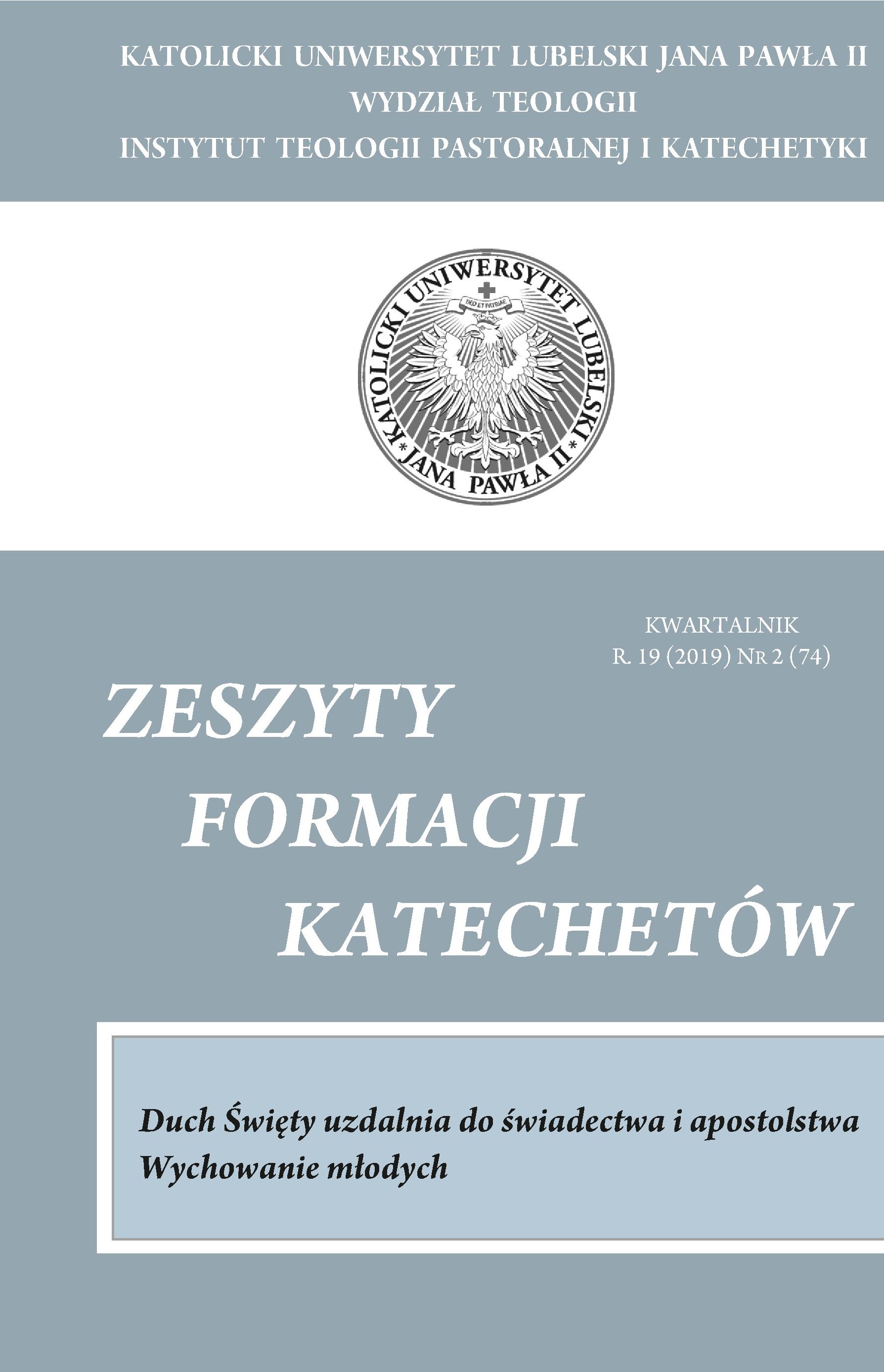Mass media in the service of education
Keywords:
mass media, means of communication, educationAbstract
The electronic media are one of the fundamental instruments of human activity. They can therefore create a new area of education in which the educational process is realized throughout the whole of our lives. The media are capable of exerting a permanent influence on a human being’s personality, as a result of which negative and positive attitudes are formed, whereas the attitudes formed by the media constitute one of the most important subjects in Christian pedagogic. Knowledge of the functions of mass media allows one to come to know their effectiveness and the mechanisms in which they function. The most often named functions are: the informative, educational, and entertainment ones. The mass media are not only an effective didactical medium and means of communication with the outside world, they are also an instrument of the new organization of the teaching-learning process, as a remote, flexible and complementary formation. If therefore, the electronic media constitute the fundamental instrument of human activity, then they can certainly create a new educational area in which the process of education is realized throughout the whole of our lives.
References
Adamski F., Czy i jak media oddziałują, w: Media w wychowaniu chrześcijańskim, Wydawnictwo KUL, red. D. Biś, A. Rynio, Lublin 2010.
Budzik A., Internet i rzeczywistość wirtualna. Szanse i zagrożenia dla kultury, w: Sacrum i kultura, red. Rubinkiewicz R., Zięba S., Lublin 2000.
Chlewiński Z., Postawy i cechy osobowości, Lublin 1987.
Czarniecki M., W niewoli mediów, Szczecin 1996.
Giermaz S., „Tolerancja” jako hasło nowej propagandy na łamach tygodnika „Wprost” w latach 1989-1995, Warszawa 1997.
Goban-Klas T., Komunikowanie masowe w nowoczesnym społeczeństwie, Warszawa-Kraków 1973.
Godzić W., Oglądanie i inne przyjemności kultury popularnej, Kraków 1996.
Góral J., Klauza K., Mass media a religijność, w: Religijność Polaków, red. Adamczuk L., Zdaniewicz W., Warszawa 1993.
Grutkowski B., Katolik a asertywność, „Studia Gdańskie” (1998) t. XI.
Izdebska J., Wychowawcze oddziaływanie środków masowego przekazu na dzieci, „Kwartalnik Pedagogiczny” nr 3 (1981).
Jarymowicz M., Makiawelizm – osobowość ludzi nastawionych na manipulowanie innymi, Osobowość a społeczne zachowanie się ludzi, red. J. Reykowski, Warszawa 1980.
Karczewska J., Mass media w wychowaniu na podstawie twórczości Stefana Kunowskiego, w: Media w wychowaniu chrześcijańskim, red. D. Bis, A. Rynio, Lublin 2010.
Kiereś H., Czy – i kiedy – media są źródłem wiedzy o świecie?, w: Człowiek w Kulturze, Lublin 1999, nr 12.
Koblewska J., Szkoła i środki masowego oddziaływania, Warszawa 1967.
Kuczyński M., Toksyczne Media, „Nasz Dziennik”, z dn. 06.03.2000.
Kunowski S., Co współczesna pedagogika mówi o wychowaniu, „Homo Dei” nr 32 (1960).
Lepa A., Media a postawy, Łódź 2002,
Lepa A., O prawo człowieka do informacji, „Znak” nr 3 (1982).
Lepa A., Pedagogika mass mediów, Łódź 2000,
Lepa A., Pedagogika mass mediów, Łódź 2000.
Plude F., Interactive Communication in the Church, w: The Church and Communication, red. P. Granfield, Kansas City 1994.
Szulczewski M., Informacja i współdziałanie, Warszawa 1982.
Tanaś M., Media w katalogu środków dydaktycznych, w: Pedagogika medialna, red. B. Siemieniecki, Warszawa 2007.
Tanaś M., Wychowanie a media, w: Pedagogika medialna, red. B. Siemieniecki, Warszawa 2007.
van Calster S., Czy telewizja izoluje człowieka? Konsumpcja zamiast komunikacji, „Communio” nr 6 (1995).
Zasępa T., Media. Człowiek. Społeczeństwo, Gdańsk 2000.
Downloads
Published
How to Cite
Issue
Section
License
Copyright (c) 2019 The Journals of Catechetical Formation

This work is licensed under a Creative Commons Attribution-NonCommercial-NoDerivatives 4.0 International License.

